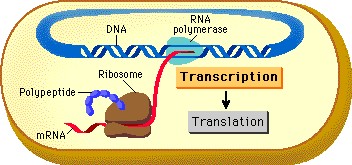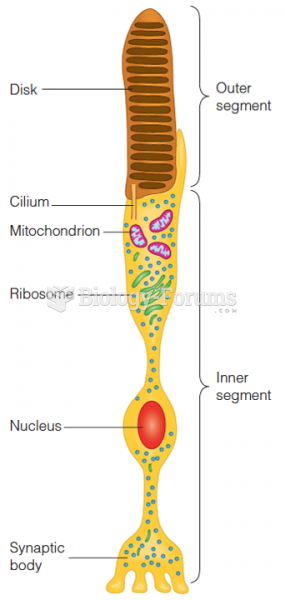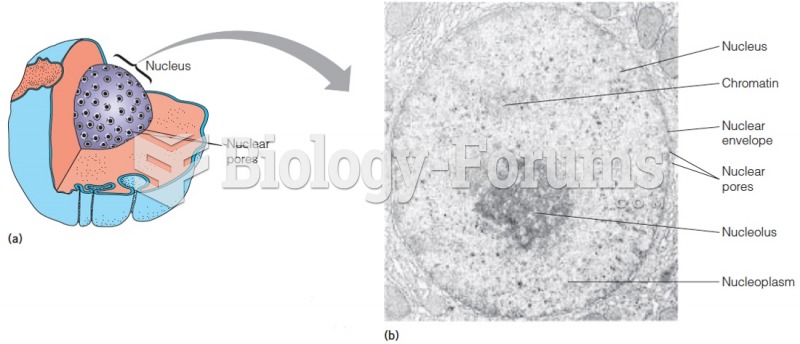|
|
|
Children with strabismus (crossed eyes) can be treated. They are not able to outgrow this condition on their own, but with help, it can be more easily corrected at a younger age. It is important for infants to have eye examinations as early as possible in their development and then another at age 2 years.
After 5 years of being diagnosed with rheumatoid arthritis, one every three patients will no longer be able to work.
The first oral chemotherapy drug for colon cancer was approved by FDA in 2001.
There are approximately 3 million unintended pregnancies in the United States each year.
It is believed that the Incas used anesthesia. Evidence supports the theory that shamans chewed cocoa leaves and drilled holes into the heads of patients (letting evil spirits escape), spitting into the wounds they made. The mixture of cocaine, saliva, and resin numbed the site enough to allow hours of drilling.







